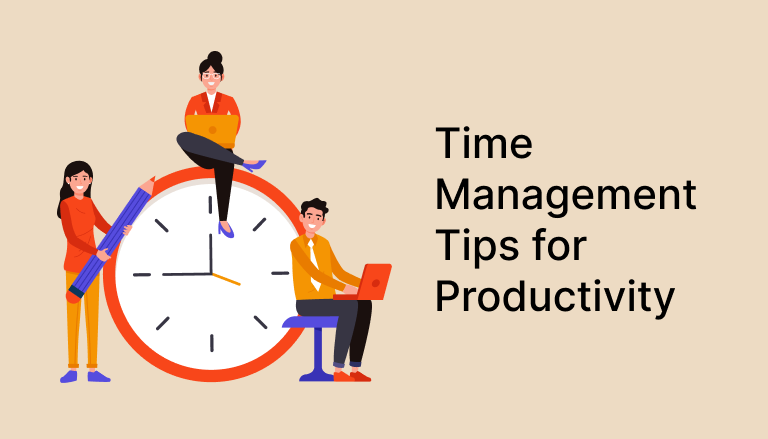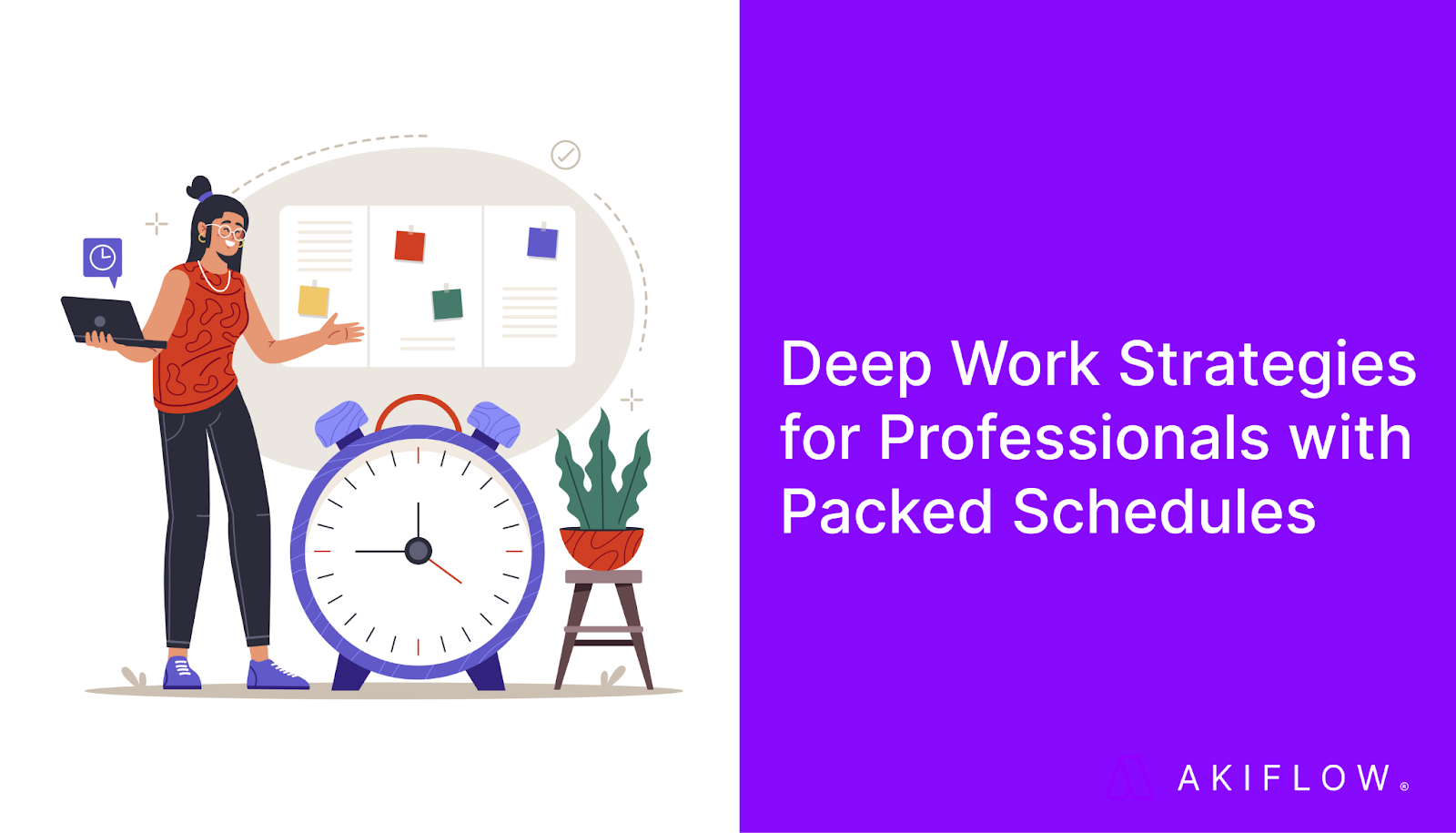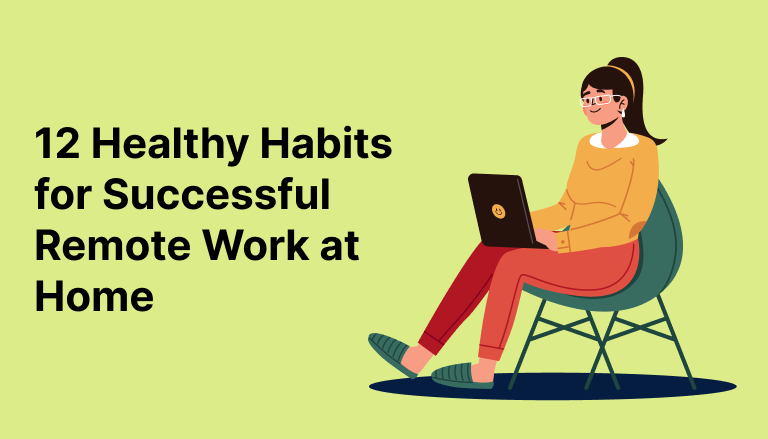Working from home may sound like the dream setup, but it often comes with unexpected challenges. Without a clear routine, it’s easy to get caught up in distractions, miss important boundaries between work and personal life, or feel isolated from your team. This lack of structure can quickly drain your energy and affect your productivity.
Healthy habits for people who work from home are essential to turning remote work into a sustainable and productive routine. With the right habits, you can stay focused, avoid burnout, and keep a healthy balance between work and home life.
This blog will look at some simple yet effective habits to help make remote work feel less like a struggle and more like a success.
The Real Challenges of Working from Home
Remote work offers flexibility, but it also comes with challenges like isolation, blurred boundaries between work and personal life, and physical discomfort. In fact, a study in 2023 found that 6 in 10 U.S. adults who primarily work from home had experienced some kind of pain, be it back pain, joint pain, or headaches. These issues can affect focus and well-being, making it crucial to address these struggles for a more productive work-from-home experience.
Let’s look at some of the common struggles of working from home.
- Isolation and Loneliness: Without the office buzz, it’s easy to feel disconnected. As bestselling author Sherry Turkle points out, “Technology doesn’t just change what we do; it changes who we are.”
- Difficulty Maintaining Work-Life Balance: At home, the lines between work and personal life blur. You may find yourself answering emails during dinner or working late into the night.
- Distractions: From laundry to pets and family members, distractions are everywhere. Without a dedicated workspace, it’s hard to stay focused and productive.
- Physical Health Concerns: Long hours at a desk can lead to back pain and fatigue. Lack of physical movement affects both comfort and overall productivity.
Once you’ve recognized the hurdles, the next step is taking action. Here are some practical habits to help you work smarter and stay balanced while at home.
12 Healthy Tips to Improve Your Remote Working
Remote work requires thoughtful routines to maintain focus and energy throughout the day. Small changes in your work habits can have a significant impact on productivity and well-being. Here are a few tips to help you improve your remote working experience.
- The Comfort-Productivity Connection
Why it’s important: The way you set up your workspace can significantly affect your posture, energy, and productivity. A comfortable workspace allows you to work more efficiently and with fewer distractions.
- Benefits: Reduces fatigue, prevents physical discomfort, and boosts focus and productivity.
- How to practice it: Position your screen at eye level to avoid neck strain, ensure your chair offers lower back support, and use a keyboard that allows your wrists to stay straight. Keep your desk organized to minimize distractions and create a space that inspires focus.
- Bring Nature Into Your Workday
Why it’s important: Nature has been proven to lower stress levels and improve overall mental health. Integrating nature into your workspace can create a calming atmosphere, which helps maintain focus during the workday.
- Benefits: Reduces stress, improves mood, and enhances productivity.
- How to practice it: Add plants to your desk, position your workspace near a window for natural light, or decorate with nature-inspired artwork. Even a few indoor plants can make a significant difference in how you feel during the day.
- Create Transition Moments
Why it’s important: Without the clear start and end provided by a commute, remote workers can feel like their workday never truly ends. Transition rituals help signal to your brain when to start working and when it’s time to rest.
- Benefits: Helps you mentally separate work from personal time, improving focus and reducing stress.
- How to practice it: Try a morning walk before sitting down to work to help signal the start of your day. Similarly, take another walk at the end of your day or create other rituals, like changing clothes or moving to a different room for lunch, to clearly demarcate work from personal time.
- Make Your Technology Work For You
Why it’s important: Constant work notifications can blur the line between work and personal life, leading to burnout. By creating boundaries, you allow your mind to focus during work hours and relax during personal time.
- Benefits: Enhances work-life balance, reduces stress, and boosts focus during work hours.
- How to practice it: Set up separate work and personal logins on your devices and use different backgrounds for each to visually mark the distinction. Turn off work notifications after hours and try to resist checking your email during personal time.
- Break Up Sitting Time
Why it’s important: Sitting for long periods can lead to physical discomfort and even long-term health issues, like back pain or poor circulation. Taking breaks is essential for your overall well-being.
- Benefits: Improves circulation, prevents back pain, and refreshes your mind.
- How to practice it: Use the Pomodoro Technique (25 minutes of focused work followed by a 5-minute break) or the 52-17 rule (52 minutes of work, 17 minutes of rest).
- Find Exercise That Fits Your Schedule
Why it’s important: Exercise helps combat stress and increases your overall energy levels. Without a commute, you have extra time to dedicate to physical activity, which can benefit both your body and mind.
- Benefits: Reduces stress, boosts energy, improves overall health, and enhances mental clarity.
- How to practice it: Use the extra time from not commuting to do morning stretches, yoga, or a quick workout. Even a short 15-minute walk after lunch can be a great way to re-energize for the second half of your day.
- Smart Eating for Steady Energy
Why it’s important: What you eat during the day can impact your energy levels and focus. Poor food choices can lead to energy crashes or sluggishness, while healthy foods can help sustain your energy levels.
- Benefits: Prevents energy dips, boosts concentration, and improves overall well-being.
- How to practice it: Plan your meals ahead of time and keep healthy snacks like nuts, fruit, or yogurt within easy reach. Avoid reaching for sugary or processed snacks, as they can lead to energy crashes.
- Step Away For Meals
Why it’s important: Eating at your desk can lead to distractions, overeating, and the blurring of personal time. Taking time for meals away from your workspace can help improve digestion and give your mind a true break.
- Benefits: Refreshes your mind, prevents digestive issues, and maintains a clear separation between work and personal life.
- How to practice it: Eat lunch in a different room from your work area. This creates a real break in your day and helps your brain transition into a relaxation mode. Avoid multitasking during meals to truly disconnect from work.
- Schedule Regular Check-ins
Why it’s important: Remote work can feel isolating, and lack of social interaction can affect morale. Regular check-ins help maintain social bonds and foster team collaboration.
- Benefits: Strengthens relationships, improves communication, and fosters team cohesion.
- How to practice it: Schedule casual video calls or virtual coffee breaks with your colleagues. These don’t have to be strictly work-related; simply chatting about personal matters can help create a sense of community and improve team dynamics.
- Find Your Community
Why it’s important: Isolation can quickly set in when you work from home, but maintaining connections with others is crucial for mental health. Online communities and social interactions can help provide a sense of belonging.
- Benefits: Reduces feelings of loneliness, fosters networking opportunities, and supports mental well-being.
- How to practice it: Participate in online professional groups, attend virtual workshops, or find a coworking space in your area. Engaging with others in different professional circles can offer fresh perspectives and valuable networking opportunities.
- Quality Over Quantity
Why it’s important: Taking breaks is essential, but it’s important to ensure they are meaningful. Short breaks allow your brain to rest and recharge, but they need to truly disconnect from work to be effective.
- Benefits: Increases focus, reduces stress, and prevents burnout.
- How to practice it: Follow the 20-20-20 rule: every 20 minutes, look at something 20 feet away for 20 seconds to relieve eye strain. For longer breaks, engage in activities that require your full attention, like stretching or stepping outside. Avoid scrolling through social media, as it often doesn’t provide the same restorative benefits.
- Practice Mindful Moments
Why it’s important: Stress is a common challenge when working remotely, and mindfulness practices can help reset your mind, reducing anxiety and improving focus.
- Benefits: Reduces stress, improves concentration, and enhances mental clarity.
- How to practice it: Engage in short mindfulness exercises throughout the day. Try deep breathing or a body scan for one minute to release tension. These practices help you regain focus and return to work with a clearer, more relaxed mindset.
Staying productive while working remotely requires more than just good habits, it’s also about having the right tools. Let’s look at some essential tools that can make your day-to-day work easier and more organized.
Must-Have Tools to Make Working from Home Easier and More Efficient
The right tools can significantly reduce the mental load of working from home, streamlining tasks and saving time. Here are some essential tools that can help you stay organized and productive without overwhelming your schedule.
Here’s a table of popular tools for smooth remote work.
| Tool | What it Can Do |
| Akiflow | Organizes meetings, deadlines, and personal time and avoids scheduling overlaps. |
| Trello | Tracks tasks, sets priorities, and ensures deadlines are met while monitoring progress. |
| Google Drive | Allows for document storage, real-time collaboration, and seamless sharing across teams. |
| Slack | Facilitates team communication through messaging, channels, video calls, and file sharing. |
| Zoom | Hosts virtual meetings, video calls, webinars, and screensharing for seamless collaboration. |
| Harvest | Tracks work hours, measures productivity, and helps analyze time spent on tasks. |
| 1Password | Manages passwords, secures files with encryption, and allows safe sharing of sensitive information. |
With the right tools in place, remote work becomes more manageable and organized. If you’re looking for a tool that pulls everything together smoothly, Akiflow might be exactly what you need.
FAQs on Healthy Habits for People Who Work From Home
- How can remote workers maintain healthy eating habits?
Remote workers can set regular meal times and avoid eating at their desks to promote mindful eating. This helps regulate metabolism and prevents unnecessary snacking, supporting overall health.
- What are the benefits of incorporating movement into work routines?
Frequent movement, such as standing or stretching during breaks, improves circulation and reduces muscle stiffness. Even small activities like heel lifts while on calls can significantly improve physical health.
- Why is hydration essential for remote workers?
Staying hydrated boosts energy levels and encourages short breaks, which help reduce screen fatigue. Regular water intake also prevents mistaking thirst for hunger, reducing unhealthy snacking.
- How can remote workers combat feelings of isolation?
Maintaining social connections through video calls and virtual meetings fosters a sense of community. Using audio-visual tools guarantees meaningful interactions beyond emails.
- What role does workspace ergonomics play in remote work health?
An ergonomic workspace prevents posture-related issues and improves productivity. Investing in supportive chairs and adjustable desks promotes long-term physical wellness.
- How do clear boundaries between work and personal life improve well-being?
Setting boundaries, such as designated workspaces and defined work hours, prevents burnout and guarantees time for personal pursuits. This balance is crucial for sustained productivity.
Final Thoughts
Healthy habits for people who work from home are about more than just getting through the day, they help you stay energized and productive in the long run. By creating boundaries, sticking to a routine, and finding balance, remote work can be both sustainable and enjoyable.
Healthy habits for people who work from home can make all the difference in how you manage your time, energy, and focus. Keep these habits in mind, adjust as needed, and you’ll create a work-from-home routine that keeps you feeling your best.
Akiflow: All-in-One Platform for Productivity
Akiflow is a powerful productivity tool designed to streamline task management and calendar integration for remote workers. By centralizing your tasks and schedules, Akiflow helps eliminate the chaos often associated with juggling multiple apps, allowing you to focus on what truly matters.
Key Features of Akiflow
- Universal Task Inbox: Aggregates tasks from over 15 different productivity tools in one place with a unified calendar view.
- Guided Rituals: Offers structured routines for daily planning and end-of-day wrap-ups to improve productivity.
- Cross-Platform Availability: Accessible on macOS, Windows, iOS, and Android, making sure of smooth use across devices.
- Adaptive Integrations: Connects with tools like Slack, Zoom, and CRM systems through Zapier and IFTTT for automated task management.
- Customizable Notifications: Provides alerts for upcoming deadlines while allowing you to control what notifications you receive.
With these features, Akiflow empowers remote workers to maintain focus, improve organization, and improve overall productivity. Download Now!

Time Management Tips for Productivity
We’ve all been there, facing a never-ending to-do list, feeling overwhelmed by deadlines, and wondering how to finish everything without burning out. If you’re struggling and asking yourself this question, “How to manage my time better,” and stay on top of your tasks, you’re not alone. In fact, the global time management software sector is […]

The Guide to Building an Effective Weekly Work Plan
Time is our most finite resource, yet we often let it slip away under the weight of distractions, shifting priorities, and scattered tasks. Consider this: That level of inefficiency isn’t due to a lack of ambition or effort; it’s often a lack of structure. A weekly work plan offers that structure. It’s a simple yet […]

Deep Work Strategies for Professionals with Packed Schedules
Most professionals understand the value of deep work. It helps you concentrate on what matters, avoid context switching, and make progress on meaningful projects. The harder part is doing it consistently, especially when your schedule fills up, priorities shift, and notifications keep pulling you away. This isn’t just about having better habits. It’s about creating […]
